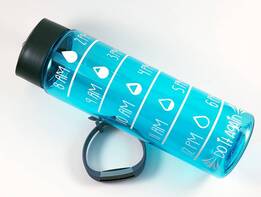 We all know that drinking water is good for us and often get told that we should be drinking more of it. But do we actually know why it is so important for us to increase our water intake and ensure that we are well hydrated? It is very common for individuals to not drink enough water day to day, but it becomes more frequent as we become older due to a decreased sense of thirst. This can lead to additional problems for those who are taking anti-diuretic medications that cause additional fluid loss. What are the benefits of drinking water?
When we don’t drink enough water, you can become at risk of dehydration. This can have negative side effects such as dizziness, weakness, low blood pressure, confusion, headaches and discolored urine. How much water should I drink per day? So how much water should we actually be consuming? The aim is to consume two to three cups per hour for healthy individuals, although this amount will vary if you are sweating through exercise, if temperatures are warmer or even just variation in our individual needs. There is also the possibility of consuming too much water particularly if you have certain health conditions such as thyroid disease, kidney, liver or heart complications. It is also possible if you are taking particular medications that may cause you to retain water, such as non-steroidal anti-inflammatory drugs, opiate pain medications and some antidepressants. If you believe that you may be affected by one of these conditions or medications, please discuss your water intake with your GP.  Tips to increase water intake.
By Aleisha Michael, Accredited Exercise Physiologist
0 Comments
Your comment will be posted after it is approved.
Leave a Reply. |
AuthorSLisa Parkinson Archives
July 2024
Categories
All
|

 RSS Feed
RSS Feed